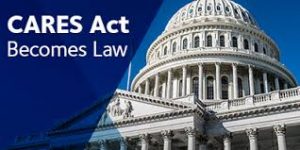Proposed California Bill Would Allow Retail Tenants To Break Leases With Little Penalty
A proposed bill circulating in California's Legislature would allow a commercial tenant to terminate its lease with a landlord if a resolution taking into account the economic effects of the coronavirus isn't met. If passed, the legislation, Senate Bill 939, would allow a tenant struggling because of state or city shelter-in-place orders to negotiate in good faith with its landlord. But if neither can find a resolution, "the commercial tenant may terminate the lease without any liability for future rent, fees, or costs that otherwise may have been due under the lease by providing written notification to the landlord." SB 939 is backed by California Sens. Scott Wiener, a Democrat from San Francisco, and Lena Gonzalez, a Democrat from Long Beach, and it has finished its third revision. The bill, introduced in March, initially placed a moratorium on commercial evictions for the duration of the coronavirus health emergency. Read more. .




















